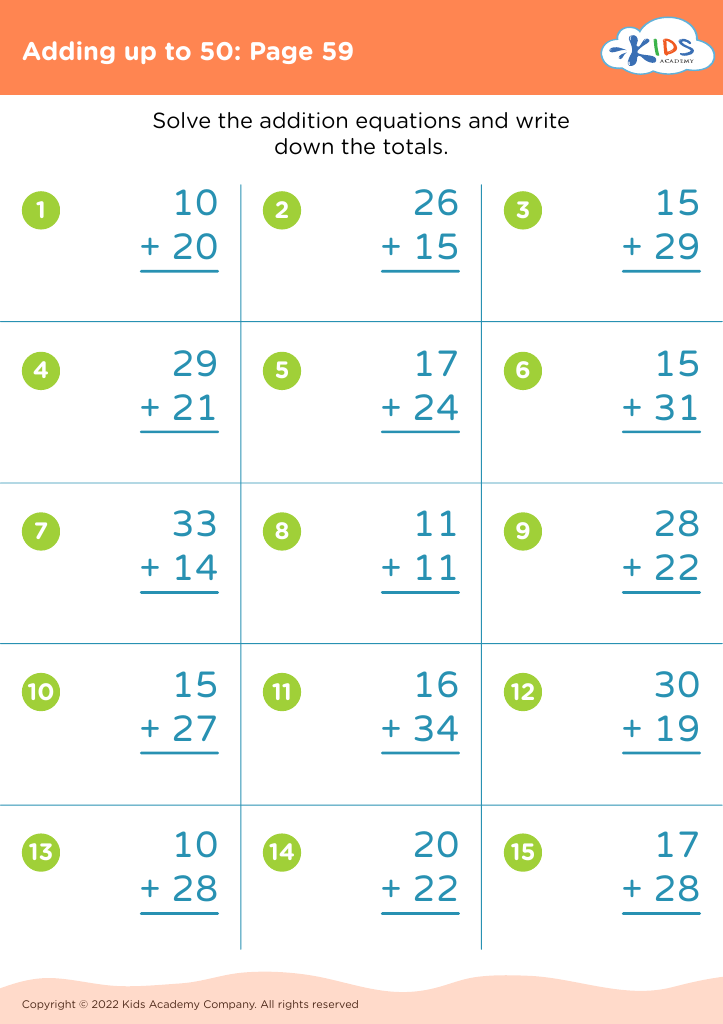Understanding sequence Addition & Subtraction Worksheets for Ages 4-8
4 filtered results
-
From - To
"Understanding Sequence Addition & Subtraction Worksheets for Ages 4-8" offer a fun and engaging way for young learners to develop essential math skills. Designed by Kids Academy, these printable worksheets help children practice and master the sequence in addition and subtraction tasks. With colorful and interactive activities, kids will easily grasp numerical order, enhance their problem-solving abilities, and build a strong arithmetic foundation. Perfect for at-home learning or classroom enrichment, these worksheets ensure that little ones gain confidence and excitement for math. Download today and watch your child grow one sequence at a time!
Understanding sequencing in addition and subtraction is critical for children aged 4-8 because it forms the foundation for their overall mathematical competence and cognitive development. During these formative years, children are at a stage where their brains are exceptionally receptive to learning patterns and logical structures.
Firstly, sequencing helps children grasp the concept of order, which is essential not only in mathematics but also in their daily routines and problem-solving abilities. When kids understand the correct order of numbers and how to manipulate them through addition and subtraction, they develop a stronger number sense, which is the cornerstone of all future math learning.
Moreover, learning to add and subtract in sequence fosters critical thinking and reasoning skills. Children learn to predict outcomes, recognize patterns, and understand the relationship between numbers. These skills are transformative and extend beyond academics, improving decision-making and analytical abilities in real-world scenarios.
Lastly, mastering these basic arithmetic skills early builds confidence. When children feel proficient in addition and subtraction, they are more likely to approach challenging problems with a positive attitude and persistence.
In summary, focusing on sequencing in addition and subtraction not only promotes numerical literacy but also enhances cognitive development, problem-solving skills, and self-confidence, laying a strong foundation for future academic and personal success.




















